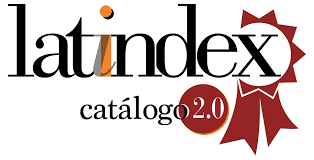Some challenges and challenges: approaches from ethics and morality in the use of artificial intelligence
DOI:
https://doi.org/10.36881/yachay.v13i1.865Keywords:
Ethics, Morality, Artificial IntelligenceAbstract
The advancement of information technologies has triggered the rise of artificial intelligence – AI – in recent years, leading to the widespread use of it without established limits, especially in learning and academic development spaces. This article aims to develop some approaches for the discussion of the challenges involved in the use of AI, considering some ethical and moral guidelines that serve to identify, if possible, establish limits on its use. To do this, we have used the documentary review that allows us to identify concepts such as ethics, morality, use of technologies and, especially, the booming development of AI; trying to establish some conceptual bases to propose some challenges in academic spaces about its use, concluding that the reflection on the discussion that can be generated about the ethical and moral limits in the use of AI is still incipient, intending to initiate some approaches that allow the urgent future discussion to develop.
Downloads
References
BBC News (02 de diciembre de 2014). Stephen Hawking: “La inteligencia artificial augura el fin de la raza humana”. BBC News. https://www.bbc.com/mundo/ultimas_noticias/2014/12/141202_ultnot_hawking_inteligencia_ artificial_riesgo_humanidad_egn
Brito Paredes, P., Villavicencio Aguilar, C., & Sánchez Saca, P. (2020). Reflexiones sobre posibles conflictos entre la inteligencia artificial y el futuro de la sociedad. Revista De La Universidad Del Zulia, 10(28), 260-280. https://produccioncientificaluz.org/index.php/rluz/article/view/30800
Bostrom, N. (2014). Superinteligencia: Caminos, peligros, estrategias. Editorial Ariel.
Carbonell-García, C. E., Burgos-Goicochea, S., Calderón-de-los-Ríos, D. O., & Paredes-Fernández, O. W. (2023). La Inteligencia Artificial en el contexto de la formación educativa. Episteme Koinonia, 6(12), 152–166. https://doi.org/10.35381/e.k.v6i12.2547
Colmenarejo, R. (2018), Ética aplicada para la gestión de datos Masivos. Anales de la cátedra Francisco Suarez (ACFS), 52, 113-129.
Giusti, M. (2007). El Sentido de la Ética. En F. Tubino (Ed.), Debates de la ética contemporánea (páginas 13-42). Fondo Editorial de la Pontificia Universidad Católica del Perú.
Kant, I. (1999), Hacia la paz perpetua, edición de Jacobo Muñoz. Biblioteca Nueva.
Miller, K. R. (2007). Por qué importa la evolución. Editorial Crítica.
Morín, E. (2001). De la reforma universitaria. Uni-pluri/versidad, 1(2). Universidad de Antioquia.
Russell, S., y Norvig, P. (2003). Inteligencia Artificial: Un enfoque moderno. Pearson Educación.
Savater, F. (1991). Ética para Amador. Editorial Ariel.
Tyson, N. D. (2004). Orígenes: Catorce Mil Millones de Años de Evolución Cósmica. Editorial Crítica.
Downloads
Published
How to Cite
Issue
Section
License

This work is licensed under a Creative Commons Attribution 4.0 International License.
You are free to:
- Share — copy and redistribute the material in any medium or format
- Adapt — remix, transform, and build upon the material
- The licensor cannot revoke these freedoms as long as you follow the license terms.
Under the following terms:
-
Attribution — You must give appropriate credit, provide a link to the license, and indicate if changes were made. You may do so in any reasonable manner, but not in any way that suggests the licensor endorses you or your use.















